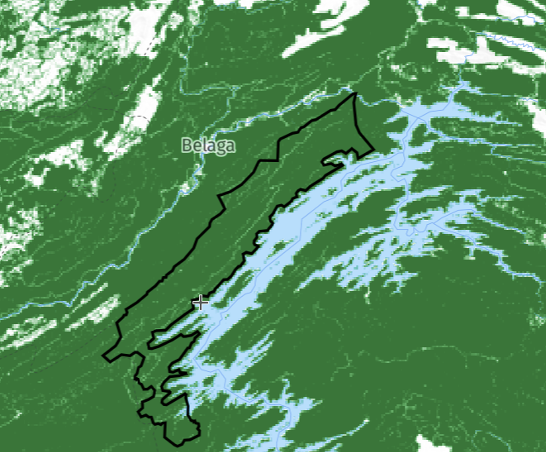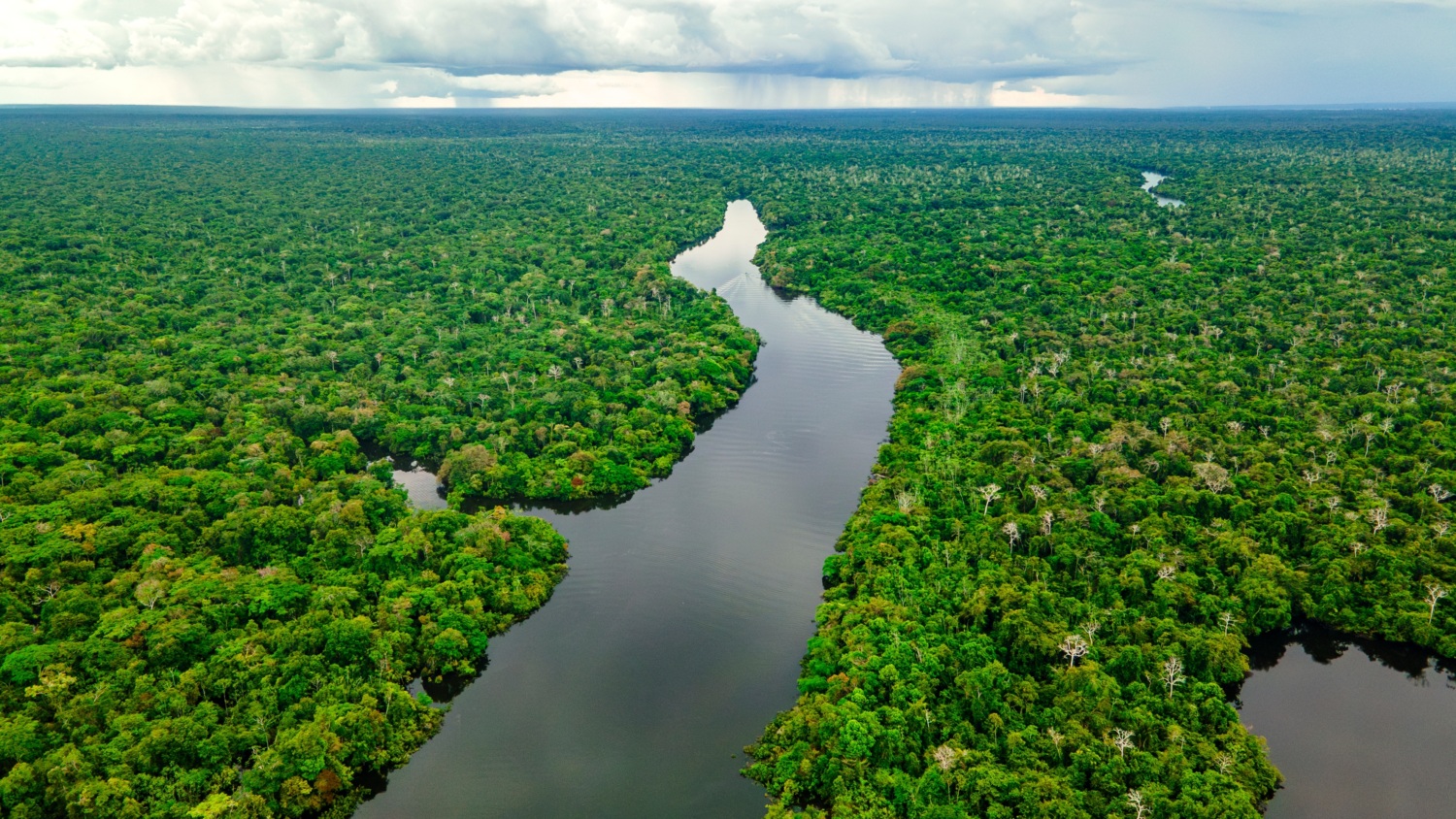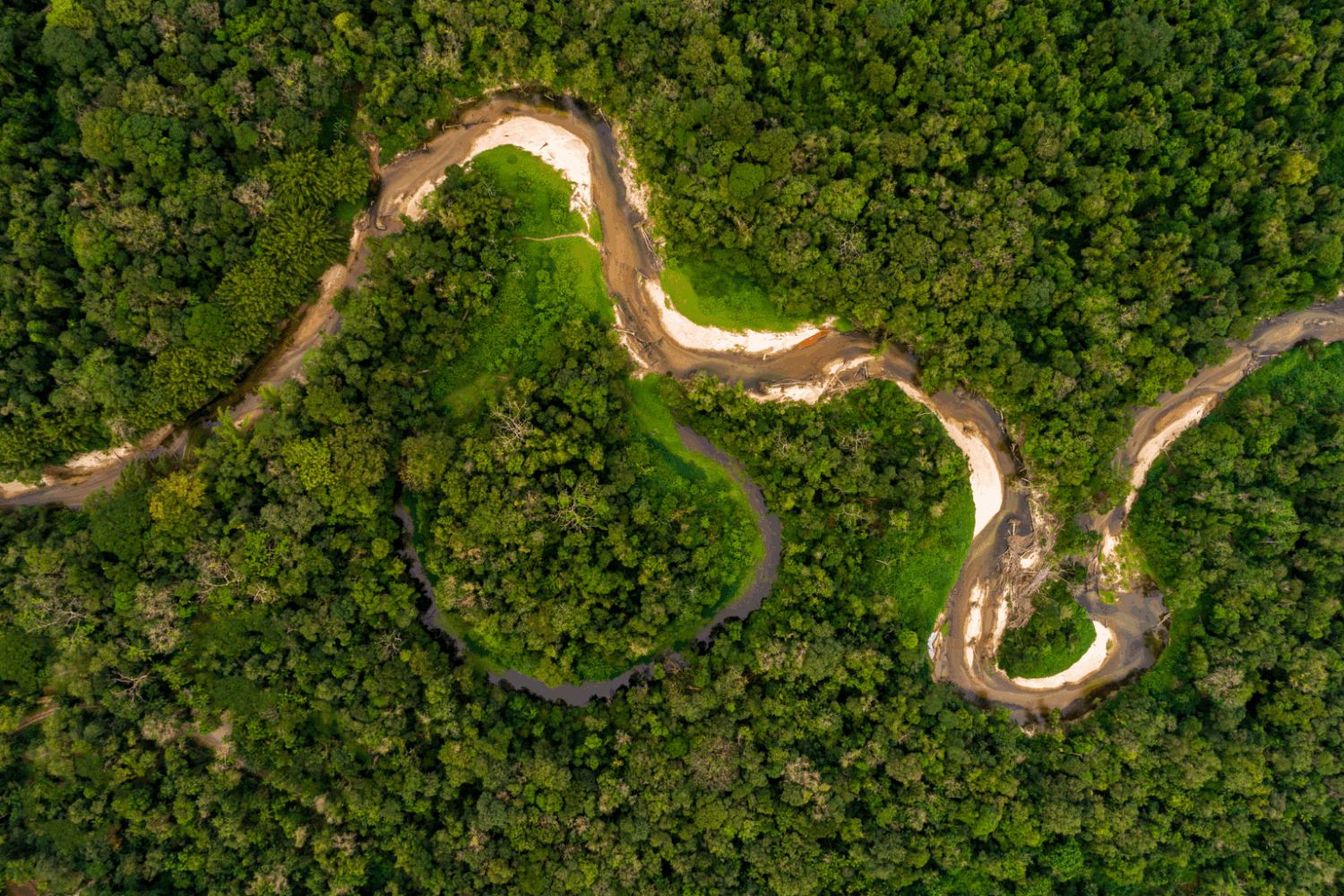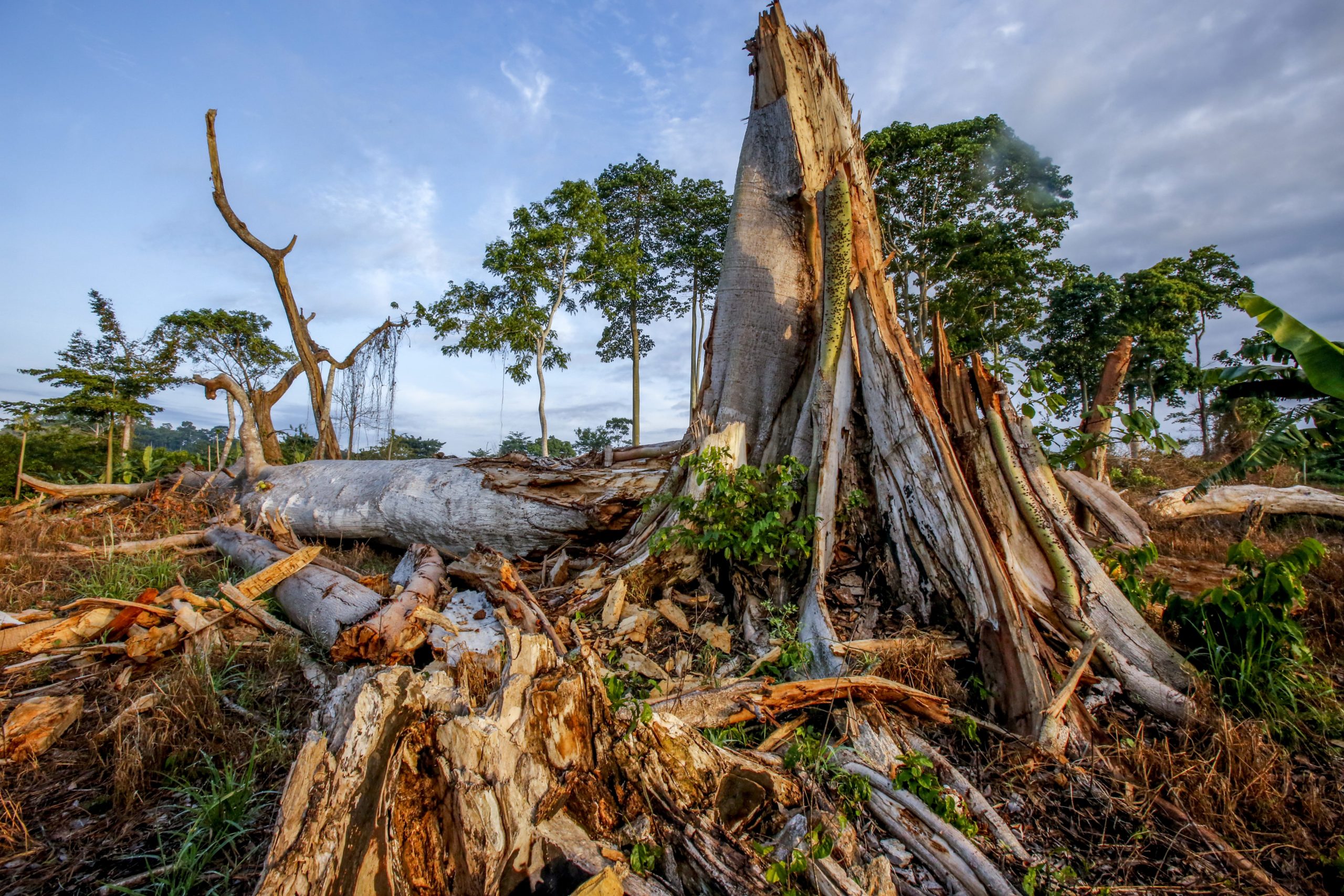
Investigation Links Chocolate to Destruction of National Parks
Added: Cocoa production in Ivory Coast and Ghana responsible for the loss of extensive forested areas, endangered chimpanzee and elephant habitat
WASHINGTON D.C.– A new investigation by Mighty Earth, “Chocolate’s Dark Secret,” finds that a large amount of the cocoa used in chocolate produced by Mars, Nestle, Hershey’s, Godiva, and other major chocolate companies was grown illegally in national parks and other protected areas in Ivory Coast and Ghana. The countries are the world’s two largest cocoa producers.
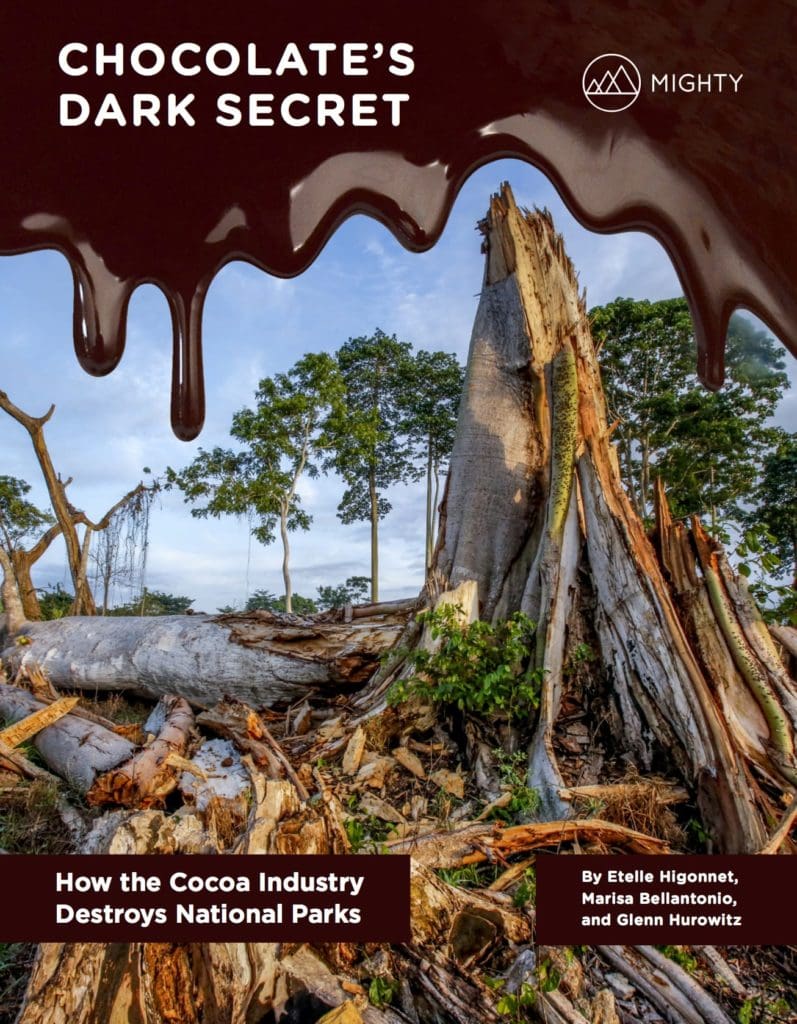 The report documents how in several national parks and other protected areas, 90% or more of the land mass has been converted to cocoa. Less than four percent of Ivory Coast remains densely forested, and the chocolate companies’ laissez-faire approach to sourcing has driven extensive deforestation in Ghana as well. In Ivory Coast, deforestation has pushed chimpanzees into just a few small pockets, and reduced the country’s elephant population from several hundred thousand to about 200-400.
The report documents how in several national parks and other protected areas, 90% or more of the land mass has been converted to cocoa. Less than four percent of Ivory Coast remains densely forested, and the chocolate companies’ laissez-faire approach to sourcing has driven extensive deforestation in Ghana as well. In Ivory Coast, deforestation has pushed chimpanzees into just a few small pockets, and reduced the country’s elephant population from several hundred thousand to about 200-400.
About half of the world cocoa market is controlled by just three companies: Cargill, Olam, and Barry Callebaut. The investigation traced how cocoa makes its way from growers in national parks, through middlemen, to these traders, who then sell it onto Europe and the United States where the world’s largest chocolate companies make it into truffles, bars, syrups, and myriad other chocolate treats.
“The extent to which big chocolate brands like Mars are linked to destruction of national parks and protected areas is shocking,” said Etelle Higonnet, Mighty Earth Campaign and Legal Director. “These companies need to take immediate action to end deforestation once and for all, and remediate past damage.”
With West Africa’s forests nearing exhaustion, the chocolate industry has begun to bring its model to other rainforest regions like the Peruvian Amazon, the Congo Basin, and Southeast Asia’s Paradise Forests.
“The ancient forests of our nation, once a paradise for wildlife like chimpanzees, leopards, hippopotamus, and elephants, have been degraded and deforested to the point that they’re almost entirely gone. This deforestation is due principally to the cultivation of cocoa. Our country has become dependent on a cocoa industry that destroys forests and the whole range of ecosystem services they offer the country. We must achieve a sustainable cocoa industry that respects forests and that actually benefits communities and the country’s economy. The big chocolate companies must make financial and technical contributions to support the government’s conservation efforts,” said SIGNO Kouamé Soulago Fernand, General Secretary ROSCIDET, a network of Ivorian NGOs specializing in environmental protection and sustainable development.
Our investigators found large villages of cocoa growers, in some cases consisting of tens of thousands of inhabitants, inside protected areas like national parks. We documented traders openly purchasing cocoa beans grown illegally inside these areas, which would then go on to be sold to most of the world’s largest chocolate companies. Despite many chocolate companies’ public sustainability initiatives, these practices have continued without any real change.
“The cocoa industry continues to exploit both forests and communities of West Africa for cocoa that is sold for large quantities of cheap, environmentally unsustainable cocoa beans. The low price of cocoa is costing us dearly here in Côte d’Ivoire in terms of deforestation and abuses of human rights. It is high time for the industry to start paying growers a living wage and to implement sustainable production practices to ensure the resilience of local ecosystems, because without forests we will all suffer and pay sooner or later,” said Sindou Bamba, General Coordinator of the Coalition of Ivorian Human Rights Actors (RAIDH).
On average, cocoa growers in Ivory Coast and Ghana are paid less than 80 cents (USD) per day and often work in dangerous conditions with long hours. Child labor is still prevalent throughout the industry, despite pledges by many chocolate companies to eliminate the practice.
The report comes at a time of unique opportunity for the chocolate industry to take real action for a more environmentally responsible future. Earlier this year, Prince Charles convened CEOs and senior leadership of 34 chocolate industry companies to begin to urge them to act on deforestation. The companies pledged to come up with a concrete plan by November’s climate summit in Bonn.
“This report shows that the chocolate industry’s long history of heralding their own commitment to sustainability hasn’t stopped them from engaging in egregious behavior,” said Higonnet. “Prince Charles has managed however to get the industry to finally start talking about doing something real, creating a unique moment in which change is possible.”
About Mighty Earth
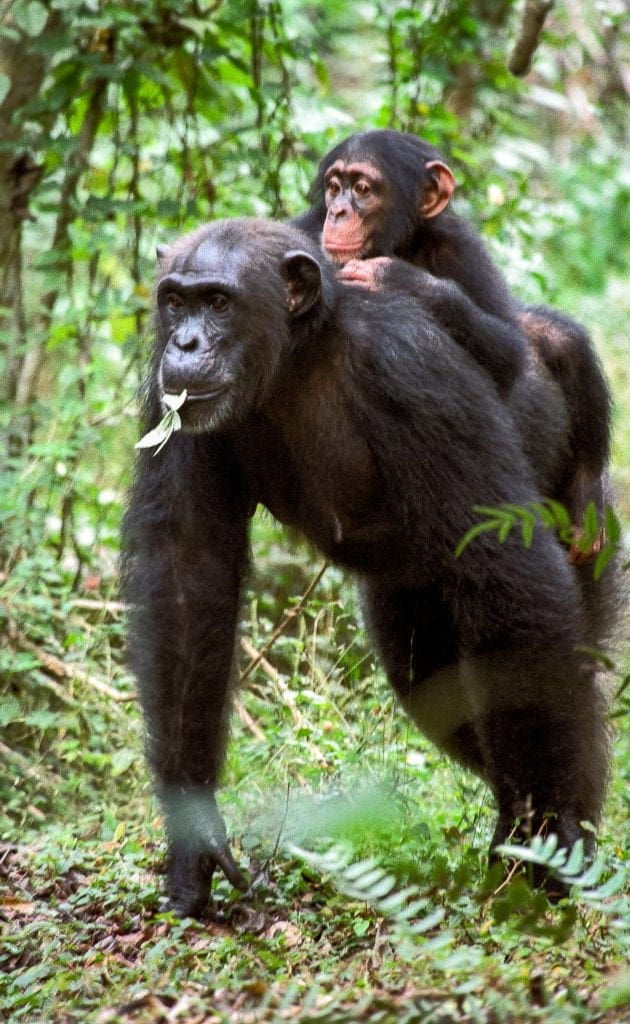 Mighty Earth is a global environmental campaign organization that works to protect forests, conserve oceans, and address climate change. We work in Southeast Asia, Latin America, Africa, and North America to drive large-scale action towards environmentally responsible agriculture that protects native ecosystems, wildlife, and water, and respects local community rights. Mighty Earth’s global team has played a decisive role in persuading the world’s largest food and agriculture companies to dramatically improve their environmental and social policies and practices. More information on Mighty Earth can be found at https://mightyearth.org/.
Mighty Earth is a global environmental campaign organization that works to protect forests, conserve oceans, and address climate change. We work in Southeast Asia, Latin America, Africa, and North America to drive large-scale action towards environmentally responsible agriculture that protects native ecosystems, wildlife, and water, and respects local community rights. Mighty Earth’s global team has played a decisive role in persuading the world’s largest food and agriculture companies to dramatically improve their environmental and social policies and practices. More information on Mighty Earth can be found at https://mightyearth.org/.
Read the full report here.
